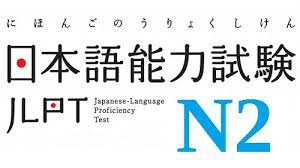
JLPT N5
This is the easiest and most basic level of Japanese. This course will concentrate on the Japanese Language Proficiency Test (JLPT N5)/or NAT- TEST 5Q, which includes fundamental elementary grammar, approximately 120 Kanji, and 800 vocabulary. Students at this level will be able to read and write basic Japanese such as Hiragana, Katakana, and basic kanji. During this course, students will be able to listen to and understand talks about the subject.
This is the easiest and most basic level of Japanese. This course will concentrate on the Japanese Language Proficiency Test (JLPT N5)/or NAT- TEST 5Q, which includes fundamental elementary grammar, approximately 120 Kanji, and 800 vocabulary. Students at this level will be able to read and write basic Japanese such as Hiragana, Katakana, and basic kanji. During this course, students will be able to listen to and understand talks about the subject.

JLPT-N4/Test preparation
We are offering an above basic level course. This course is designed for students who have already completed the JLPT N5/NAT -5Q level or have spent more than 150 hours of continuous Japanese learning. This course will concentrate on the Japanese Language Proficiency Test (JLPT - N4)/or NAT- TEST - 4Q, which includes advanced elementary grammar, about 320 Kanji, including N5 Kanji, and 2000 vocabulary words. Students at this level will be able to communicate and share ideas in general, as well as read and understand passages on familiar daily issues written using basic vocabulary and Kanji.

JLPT-N3/ Test preparation
This is a Japanese language course for intermediate students. This course is designed for students who have previously completed the JLPT N4 or NAT -4Q level and are applying for a student visa. This course focuses on the Japanese Language Proficiency Test.Students at this level would be able to speak smoothly and discuss everyday circumstances to some extent. One gains the ability to read and comprehend written texts with specialized content on everyday themes. He or she also gains the ability to comprehend summary information such as newspaper headlines or understand somewhat challenging compositions found in daily life

JLPT-N2/ Test preparation
The capacity to comprehend Japanese in ordinary scenarios and in a range of contexts. Reading is the ability to read and absorb things written clearly on a wide range of topics, such as articles and commentary in newspapers and periodicals, as well as easy criticisms. One can also read written materials on general themes, follow their storylines, and grasp the creators' aim. Listening is the ability to absorb orally provided information such as coherent discussions and news stories, which are spoken at near natural pace in everyday circumstances as well as in a range of contexts, and to follow their ideas and comprehend their contents.